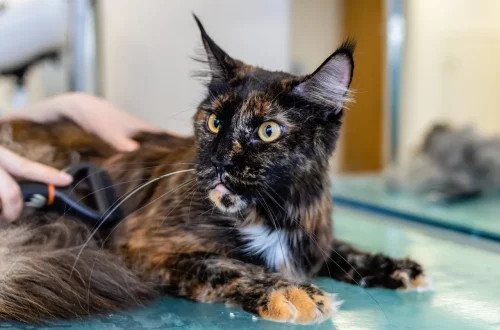
Do Women Like Bald Guys? Exploring Preferences and Attraction Factors
The image of a bald man has long been a topic of fascination and debate in the realm of attraction and preference. Across cultures and societies, perceptions of baldness can significantly influence dating dynamics and relationship choices. While some individuals may view baldness as a symbol of maturity and confidence, others might associate it with aging or a lack of vitality. This divergence in opinion leads to a deeper exploration into what women truly think about bald men and how these perceptions shape attraction.
In contemporary society, where personal aesthetics are often amplified by social media and celebrity culture, it’s crucial to understand the underlying factors that influence attraction. The conversation around baldness is often intertwined with masculinity, self-esteem, and societal standards of beauty. As we delve into this intricate subject, we will uncover the nuances that contribute to preferences and how they vary among different women. Ultimately, the question remains: Do women like bald guys? The answer may be more complex than a simple yes or no.
Understanding Societal Standards of Beauty
The concept of beauty is deeply rooted in societal norms, which can vary widely across different cultures and time periods. Historically, long hair on men has been associated with youth and vitality, while baldness is often linked to aging. However, these associations are subject to change, particularly as cultural perceptions evolve.
In modern media, we see a shift in how baldness is portrayed. Many celebrities, from actors to athletes, embrace their baldness, often redefining masculinity in the process. This visibility can influence women’s perceptions of bald men, making them more acceptable and even appealing. When a man carries his baldness with confidence, it can convey a sense of self-assuredness that many women find attractive.
Moreover, societal standards of beauty are not static; they are constantly being challenged and reshaped. The rise of body positivity movements and the celebration of diverse appearances have broadened the definition of attractiveness. Women are increasingly valuing traits such as personality, humor, and intelligence over conventional physical attributes. This shift suggests that baldness, rather than being a deterrent, can be seen as just one aspect of a man’s overall appeal.
As we navigate this complex landscape, it’s essential to recognize that individual preferences vary widely. Some women may prefer the look of a bald man, while others might lean towards more traditional hairstyles. The key takeaway is that beauty is subjective, and what one woman finds attractive, another may not. Understanding this nuance is crucial in comprehending the broader conversation about baldness and attraction.
The Role of Confidence in Attractiveness
Confidence plays a pivotal role in attraction, often transcending physical appearances. A bald man who carries himself with confidence can significantly alter perceptions of attractiveness. This self-assuredness can be magnetic, drawing people in regardless of hair status.
Women are often attracted to men who exude confidence because it suggests stability, self-respect, and decisiveness. A bald man who embraces his look and conveys comfort in his skin can be perceived as more appealing. This is not to say that physical attributes do not matter, but confidence can enhance a man’s overall attractiveness, making baldness a non-issue.
Furthermore, the way a man presents himself can also affect how others perceive his baldness. For example, a well-groomed bald man who dresses stylishly and maintains good hygiene may be seen as more attractive than someone who neglects their appearance. This highlights the importance of personal grooming and style in shaping perceptions of attractiveness.
It’s also worth noting that confidence can be cultivated through various means, such as personal development, fitness, and social engagement. As men work on building their self-esteem, they often find that their attractiveness increases, regardless of their hair status. This speaks to a broader truth in the realm of attraction: it’s not just about the outward appearance but also the inner qualities that define a person’s charisma.
Personal Preferences and Individual Variation
Attraction is deeply personal and varies from individual to individual. While some women may have a preference for men with full heads of hair, others may find baldness appealing for various reasons. These preferences can stem from personal experiences, cultural influences, and even familial ties.
For some women, a bald man may evoke feelings of safety and security, as baldness is often associated with maturity and wisdom. This perception can be particularly appealing to those seeking a partner who embodies stability and reliability. Conversely, some women might prefer a more youthful appearance, which could lead them to favor men with hair.
It’s also important to consider the impact of personal experiences on attraction. A woman who has had positive relationships with bald men in the past may be more inclined to find baldness attractive. On the other hand, negative associations could lead to the opposite preference. These personal narratives play a significant role in shaping attraction and highlight the complexity of individual preferences.
Moreover, societal narratives around masculinity can also influence preferences. In some cultures, baldness is seen as a sign of strength and dominance, which can be attractive qualities. This cultural lens can significantly shift how women view bald men and their overall desirability.
Ultimately, understanding that attraction is multifaceted can help demystify the question of whether women like bald guys. It requires acknowledging that individual preferences are shaped by a myriad of factors, from personal experiences to cultural standards.
Exploring Psychological Factors Behind Attraction
Attraction is not merely a surface-level phenomenon; it is deeply rooted in psychological factors that influence how individuals perceive one another. Various theories in psychology can help shed light on why some women may be drawn to bald men.
One prominent theory is the concept of the ‘halo effect,’ which suggests that people attribute positive characteristics to individuals who possess one appealing trait. For example, if a bald man is perceived as confident and charismatic, women may also associate him with other positive qualities, such as intelligence or kindness. This can create a favorable impression that transcends physical attributes.
Another psychological factor is the idea of familiarity. According to the mere exposure effect, individuals tend to develop a preference for things merely because they are familiar with them. In a world where baldness is increasingly normalized and accepted, women may find themselves more attracted to bald men simply due to increased exposure to positive representations in media and popular culture.
Additionally, evolutionary psychology offers insights into attraction dynamics. Some studies suggest that women may be attracted to bald men for reasons tied to evolutionary fitness and survival. A bald man who displays confidence may signal to potential partners that he has good genes and can provide for a family. This instinctive attraction can lead women to view baldness as an attractive trait rather than a drawback.
Understanding these psychological factors can provide a deeper perspective on the question of attraction. It emphasizes that the appeal of baldness may not solely be based on physical attributes but also on the psychological and social contexts in which these men are perceived.
In conclusion, the question of whether women like bald guys is complex and multifaceted. Preferences are influenced by societal standards of beauty, confidence, individual experiences, and psychological factors. Ultimately, attraction is a deeply personal experience shaped by a myriad of influences, reminding us that beauty truly lies in the eye of the beholder.
*Disclaimer: This article is not intended as medical advice. For any health-related issues, please consult a qualified healthcare professional.*




